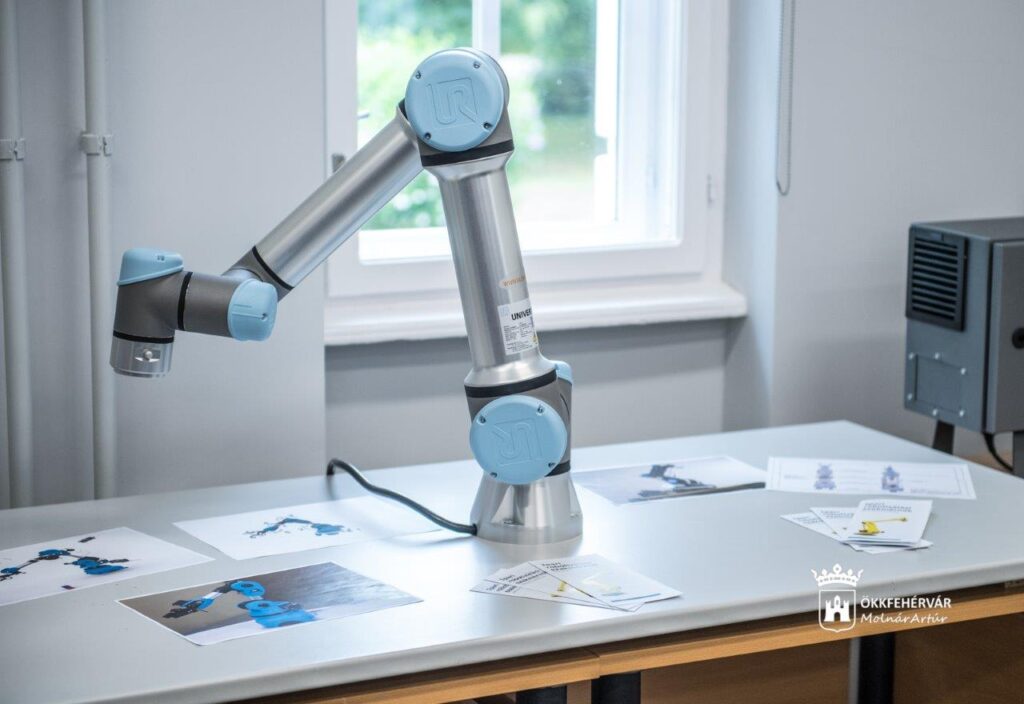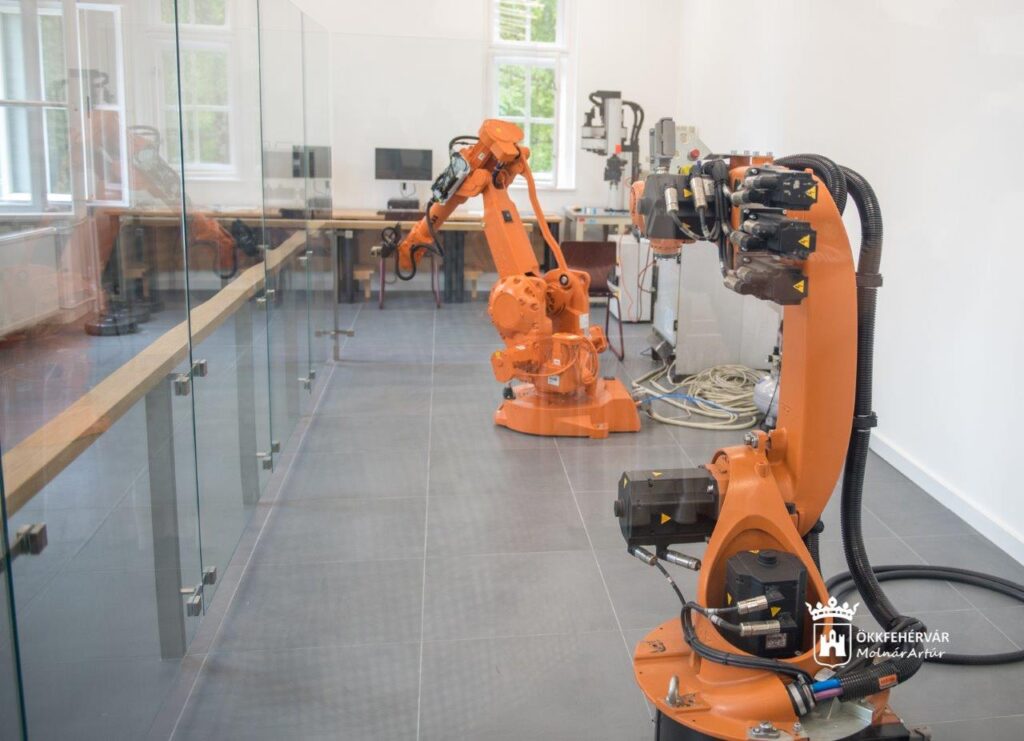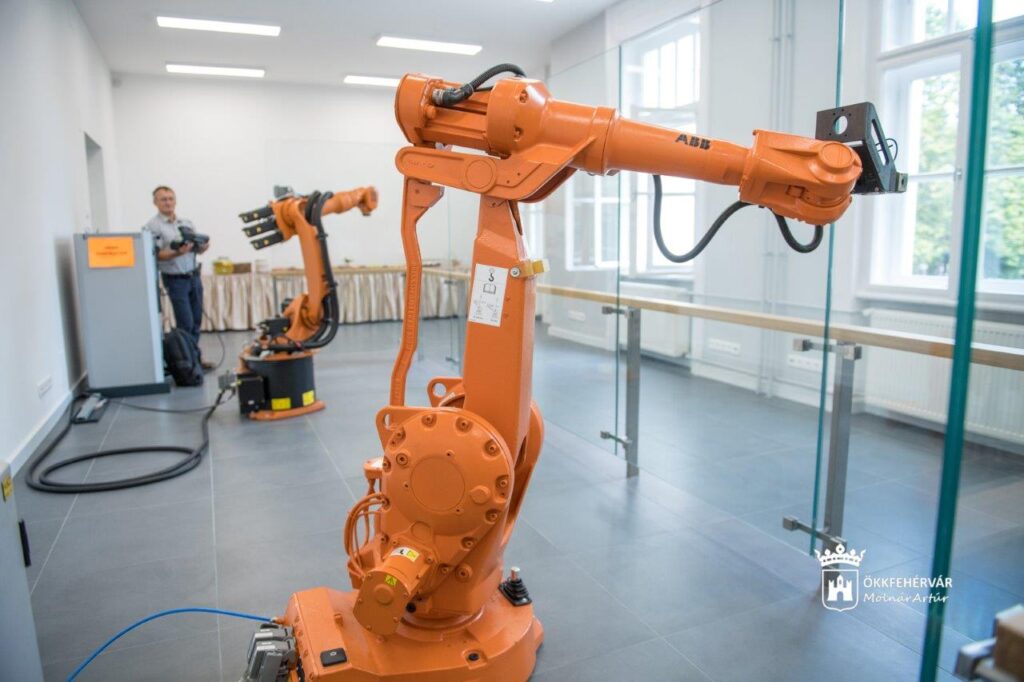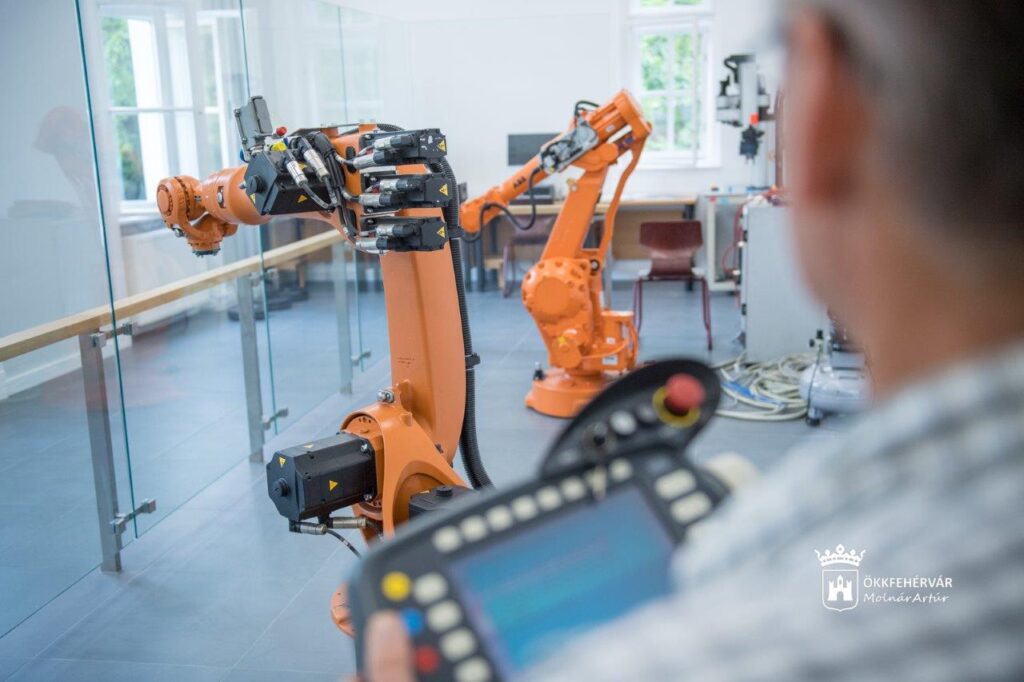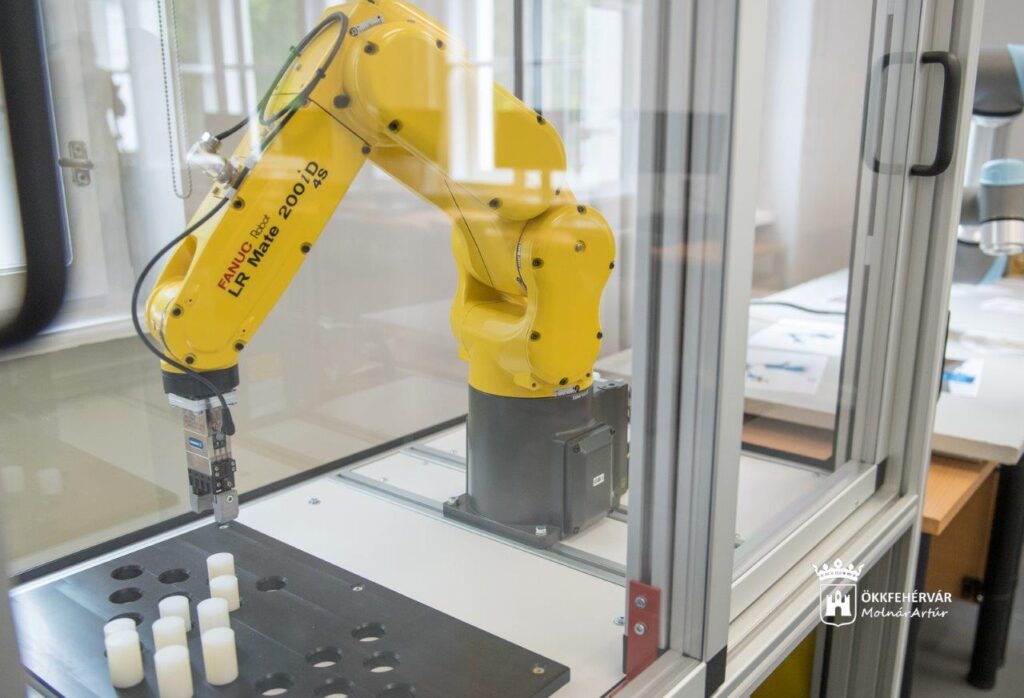Industrial Robotics Engineering / Specialist
Objective:
The aim of the Industrial Robotics Engineering course is to equip students with the knowledge required to meet the growing demands of the industry for robotics engineers. Recently, two laboratories have been refurbished to accommodate several industrial robots (Fanuc, UR, ABB, KUKA), offering students the opportunity to learn robot programming in a specialized, practice-oriented training programme. The focus is on enhancing skills in the maintenance and optimization of industrial processes and production lines, as well as robot integration and maintenance.
The name of the specialised training course is
Industrial Robotics Engineering or Industrial Robotics Specialist
Name of higher education institution/faculty
Óbuda University Alba Regia Technical Faculty, Székesfehérvár
Prerequisites for Application:
A university or college degree.
Qualification in the Field of Study:
Diploma in Engineering: Industrial Robotics Engineering.
For other university or college degrees: Industrial Robotics Specialist.
Main subjects covered in the curriculum
- Industrial robots
- PLC programming
- Electro-pneumatic
Training Characteristics
- Duration: 4 terms
- Frequency: Weekly on Friday afternoons between 14:30 and 19:30
- The training starts in the spring term
- Venue: Alba Regia Faculty of Technology, Székesfehérvár
To enquire please contact:
Address: 8000 Székesfehérvár, Budai út 45.
Tel/fax: +36 (22) 200-419
E-mail: to@amk.uni-obuda.hu
Dr. Károly Széll
E-mail: szell.karoly@uni-obuda.hu
Tel/fax: +36 (30) 336-3644
Curriculum
| Semester/Course Title | Credit | Hours | Requirement |
| Semester I | |||
| Programming Techniques in Automation | 5 | 15 | Mid-term grade |
| Industrial Robots I | 8 | 20 | Exam |
| Dynamics of Industrial Robots | 5 | 15 | Mid-term grade |
| Industrial Electronics I. | 4 | 10 | Intermediate grade |
| 3D modelling and simulation | 4 | 10 | Intermediate grade |
| Manufacturing automation processes | 4 | 10 | Exam |
| Semester I total | 30 | 80 | A: 2, S: 4 |
| Semester II | |||
| Project work | 4 | 10 | Mid-term grade |
| Industrial Robots II | 7 | 20 | Exam |
| PLC programming I | 7 | 20 | Exam |
| Industrial electronics II | 4 | 10 | Mid-term grade |
| Sensors and actuators | 4 | 10 | Mid-term grade |
| Diagnostics | 4 | 10 | Mid-term grade |
| Semester II total | 30 | 80 | A: 2, S: 4 |
| Semester III | |||
| Thesis I | 7 | 20 | Signature |
| Industrial Robots III | 8 | 20 | Exam |
| PLC programming II | 7 | 20 | Exam |
| Electropneumatics | 4 | 10 | Mid-term grade |
| Compulsory optional subject I | 4 | 10 | Mid-term grade |
| Semester III Total | 30 | 80 | A: 1, D: 2, S: 3 |
Semester IV | |||
| Thesis II | 7 | 20 | Signature |
| Industrial robots IV | 7 | 20 | Exam |
| Test and Measurement | 4 | 10 | Mid-term grade |
| Design of mechatronic systems | 4 | 10 | Exam |
| Data processing | 4 | 10 | Mid-term grade |
| Compulsory optional subject II | 4 | 10 | Mid-term grade |
| Semester IV Total | 30 | 80 | A: 1, D: 2, S: 3 |
| Compulsory optional subjects | |||
| Embedded systems | 4 | 10 | Mid-term grade |
| Industrial Informatics | 4 | 10 | Mid-term grade |
| Machine Intelligence | 4 | 10 | Mid-term grade |
We use RoboDK for simulation and offline programming of industrial robots: https://robodk.com/
„What a human can do in a clear and understandable way, a machine can also do.”
Norbert Wiener
